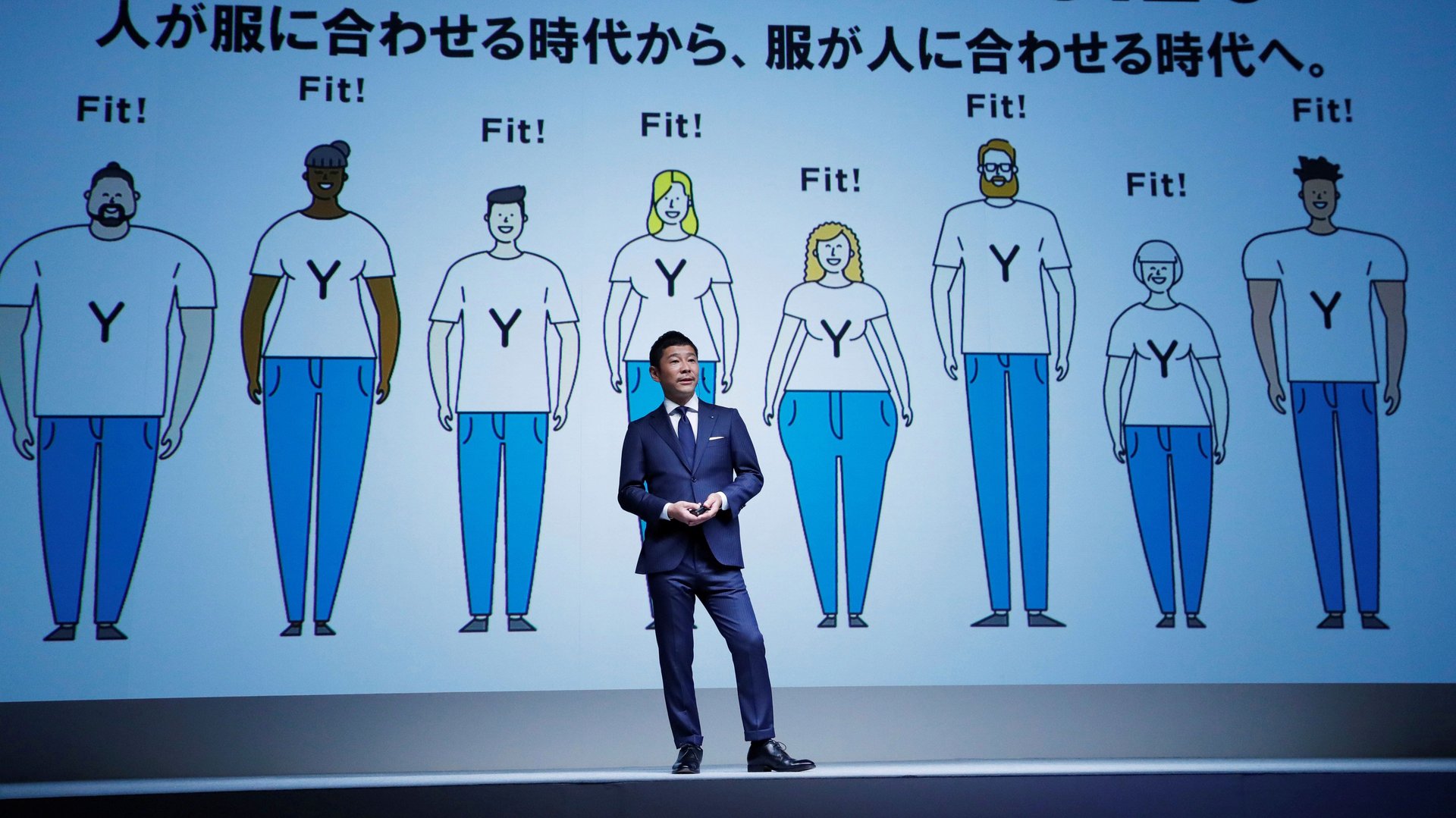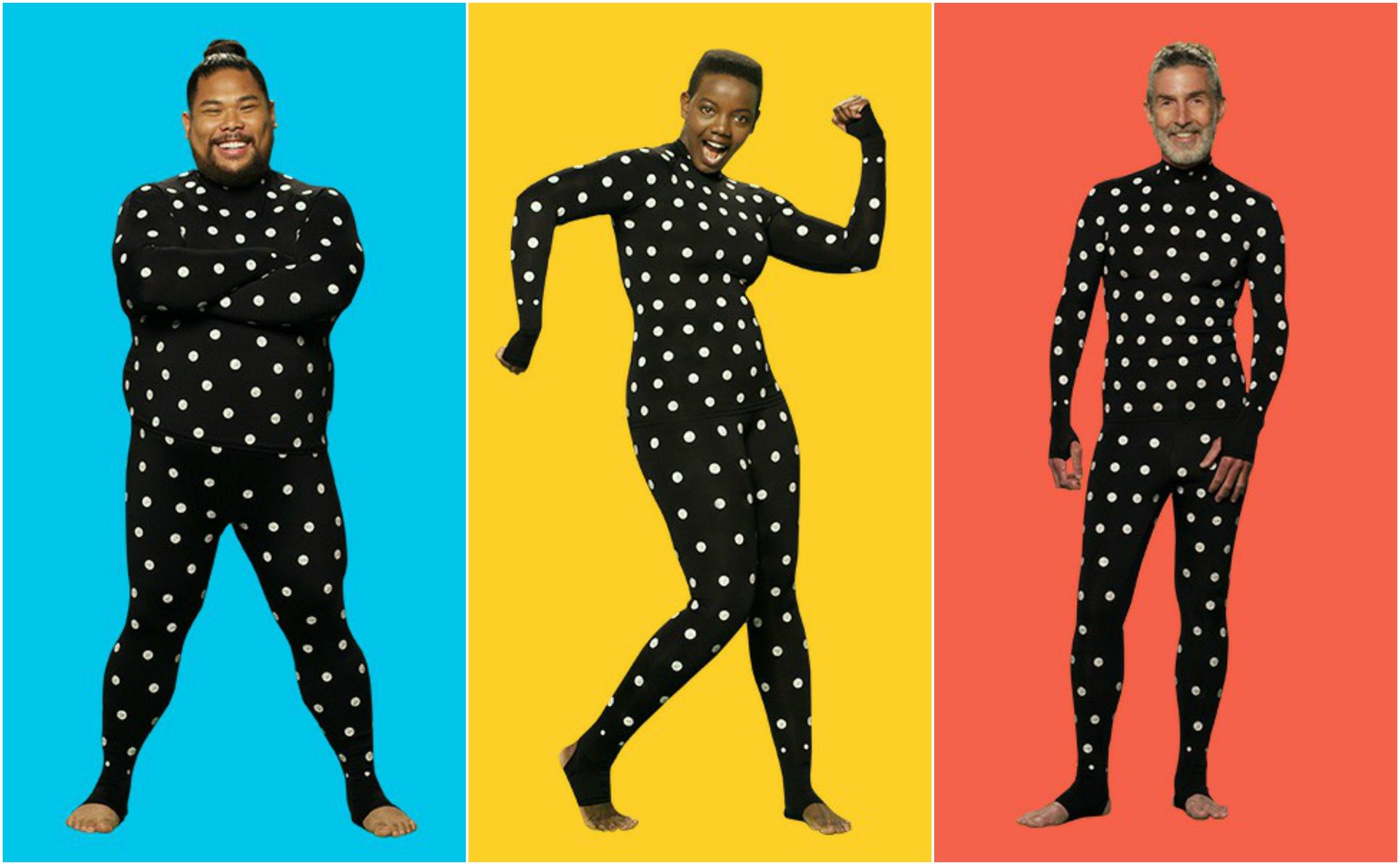Zozo’s CEO is apologizing for the failure of its much-hyped Zozosuit fitting system
The Zozosuit, a skintight black bodysuit covered in white dots, was supposed to be Zozo Inc.’s way of revolutionizing the clothing business. Instead, it’s turning out to be a very costly misstep for Japan’s largest fashion e-commerce player.


The Zozosuit, a skintight black bodysuit covered in white dots, was supposed to be Zozo Inc.’s way of revolutionizing the clothing business. Instead, it’s turning out to be a very costly misstep for Japan’s largest fashion e-commerce player.
The company announced today (Jan. 31) that it’s cutting its operating profit forecast (pdf) for the year to 26.5 billion yen ($243.7 million), down from its previous estimate of 40 billion yen. The main reason was the Zozosuit, which hasn’t brought in the returns, or the glowing customer responses, Zozo had hoped.
Zozo’s idea was that the suit would let shoppers order clothes with a near-custom level of fit from the inexpensive, private-label clothing line it launched as it tries to expand beyond Zozotown, its platform for selling other brands and the bedrock of the company. The dots on the suit are markers that Zozo’s phone app reads to create a 3D model of the wearer’s body, letting the customer order clothes such as $58 jeans or a $22 t-shirt matched to their shape.

Zozo, viewing the suits as a path to sales and publicity, hasn’t charged for the suits themselves since launching them in Japan in November 2017. In May 2018, it reached 1 million orders of the suit, and said it expected to deliver several million more more within a year while expanding the line to 72 countries around the world. Among them, it later revealed, were the US, UK, China, Brazil, India, and many more, potentially offering a massive new reach to the company, which controls a large share of Japan’s online market for mid-level and high-end clothing but remains largely unknown elsewhere.
But today, Zozo CEO Yusaku Maezawa told analysts that while many people ordered the suits, not nearly as many purchased clothes. Others didn’t even bother to upload their measurements with the Zozo app. ”By distributing the ‘Zozosuit’ for free so that people could take measurements, we were hoping to create demand for the Zozotown business, including the private brand,” the company said in a statement reported by Reuters. “But the impact did not have the scale that we had hoped for.”
Reuters added that an “unusually contrite” Maezawa called it a year of “trial and error,” and said, “We have caused our investors great concern.” The company’s stock price has fallen by more than half since its peak just over six months ago in July.
The company revealed in November that it was discontinuing the suit in Japan, saying it had enough customer data in the market to make clothes using just a customer’s height and weight, but also slashing expenses.
Zozo’s clothing line has been hampered by other problems too. The fit of the clothes is supposed to be the selling point, the reason customers would bother ordering the suit, uploading measurements, and then waiting weeks for any clothes they purchase. But the fit has gotten some strong negative reviews in the US, among other places.
Zozo has also been plagued by delays producing clothes people ordered, in some cases taking months to ship items, rather than the two weeks it originally claimed. It has since revised its delivery timeline to six weeks.
After hearing about people’s complaints with their Zozo orders, I got some clothes myself. I put on the Zozosuit, measured myself with the app—a simple enough process—and on Dec. 13, placed my order for a pair of jeans, a t-shirt, and an oxford button-up. I received my clothes on Jan. 22, within the extended six-week timeframe Zozo now promises. The fit, however, was disappointing. The t-shirt fits nicely in the chest and shoulders, but floats away from my body toward my waist. The button-up is shorter than I would like, and more billowy. The jeans may technically fit fine, but the taper through the bottom of the leg is more than I care for. Despite the time and effort it took to get them, the clothes I got don’t fit me better than what I’ve bought off the rack.
The Zozosuit was always going to be a longshot, given that it seeks to upend how the clothing industry has worked for decades. Maezawa, who recently broke the record for the most retweeted tweet of all time and plans to fly around the moon with Elon Musk on SpaceX, seems the sort to make such an effort. But the experience seems to have chastened him a bit. According to Reuters, Maezawa told anaylsts that Zozo will pivot from its “high risk, high return” strategy to one with medium returns, and lower risk.